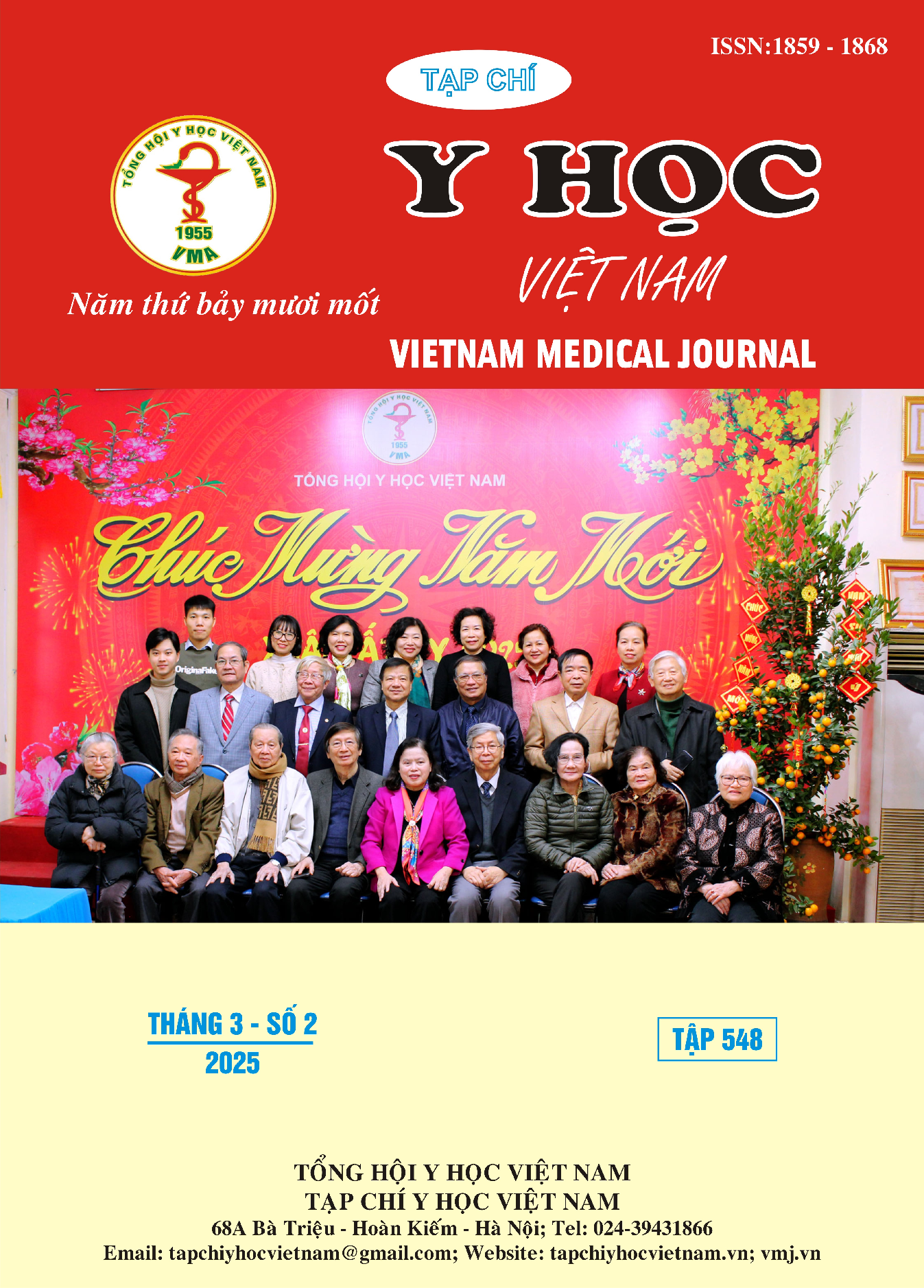EVALUATION OF THE EFFICACY AND SAFETY OF INFLIXIMAB IN THE TREATMENT OF PATIENTS WITH INFLAMMATORY BOWEL DISEASE AT THE GASTROENTEROLOGY DEPARTMENT, UNIVERSITY OF MEDICINE AND PHARMACY, HO CHI MINH CITY
Main Article Content
Abstract
Objective: Inflammatory bowel disease (IBD) poses a significant therapeutic challenge. Infliximab, a TNF-α inhibitor, has demonstrated efficacy, but data from Vietnam are scarce. This study evaluated Infliximab's efficacy and safety in IBD patients in Ho Chi Minh City. Subject and Methods: A retrospective and prospective cohort study encompassing 32 Vietnamese IBD patients (23 CD, 9 UC) treated with Infliximab from November 2019 to December 2023 was conducted. Data on clinical response, endoscopic remission, laboratory markers (CRP, calprotectin), and adverse events were collected. Results: At 54 weeks, clinical response rates were 71.4% for CD and 83.3% for UC. Remission rates were 57.1% for CD and 83.3% for UC. CRP normalization was achieved in 56.3% of CD and 75% of UC patients at 54 weeks. Calprotectin normalization rates at 54 weeks were 66.7% for CD and 40% for UC. Endoscopic remission at 54 weeks was observed in 86.7% of CD and 44.4% of UC patients. Improvement on imaging at 54 weeks was noted in 70.6% of CD patients. Adverse events included hospitalization (31.3%), serious infections (21.9%), opportunistic infections (28.1%). One CD patient (3.1%) died. Conclusion: Infliximab demonstrated significant efficacy and manageable adverse events in treating Vietnamese IBD patients. However, the high rate of infections underscores the importance of stringent pre-treatment screening and close monitoring during therapy. Larger-scale studies are needed to validate these findings and inform optimal management strategies in the Vietnamese context.
Article Details
Keywords
Infliximab, Inflammatory Bowel Disease, Crohn's Disease, Ulcerative Colitis, Efficacy
References
2. Hanauer SB, Feagan BG, Lichtenstein GR, et al. Maintenance infliximab for Crohn’s disease: the ACCENT I randomised trial. The Lancet. 2002;359(9317):1541-1549.
3. Jangi S, Ruan A, Korzenik J, de Silva P. South Asian Patients With Inflammatory Bowel Disease in the United States Demonstrate More Fistulizing and Perianal Crohn Phenotype. Inflammatory Bowel Diseases. 2020;26(12):1933-1942.
4. Nguyễn Thái Duy. Đặc Điểm Lâm Sàng và Cận Lâm Sàng Của Bệnh Nhân Viêm Ruột Mạn Tính. Luận văn Chuyên khoa cấp II. Đại Học Y Dược Thành phố Hồ Chí Minh; 2020.
5. Roblin X, Marotte H, Leclerc M, Del Tedesco E, et al. Combination of C-reactive protein, infliximab trough levels, and stable but not transient antibodies to infliximab are associated with loss of response to infliximab in inflammatory bowel disease. J. Crohn’s Colitis 2015, 9, 525–531.
6. Lichtenstein GR, Feagan BG, Cohen RD, et al. Serious Infection and Mortality in Patients With Crohn’s Disease: More Than 5 Years of Follow-Up in the TREATTM Registry. American Journal of Gastroenterology. 2012;107(9):1409-1422.
7. Colombel JF, Panaccione R, Bossuyt P, et al. Effect of tight control management on Crohn’s disease (CALM): a multicentre, randomised, controlled phase 3 trial. The Lancet. 2017;390 (10114):2779-2789.
8. Panaccione R, Ghosh S, Middleton S, et al. Combination Therapy With Infliximab and Azathioprine Is Superior to Monotherapy With Either Agent in Ulcerative Colitis. Gastroenterology. 2014;146(2):392-400.e3.


